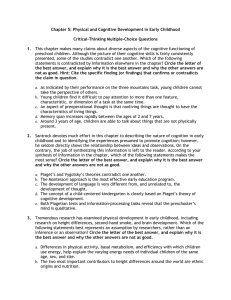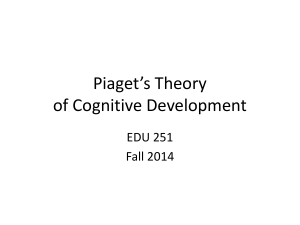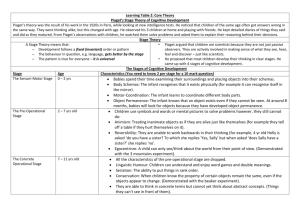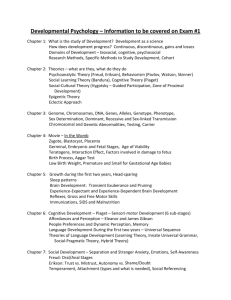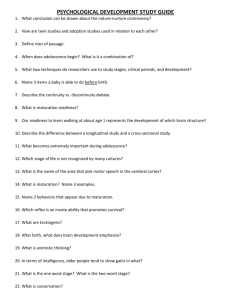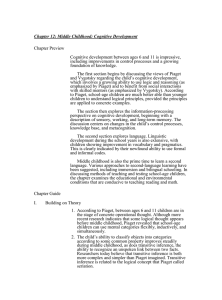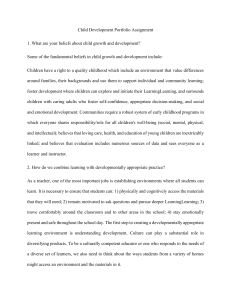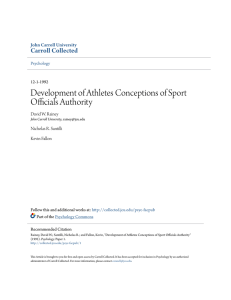Changing Conceptions of Childhood
advertisement
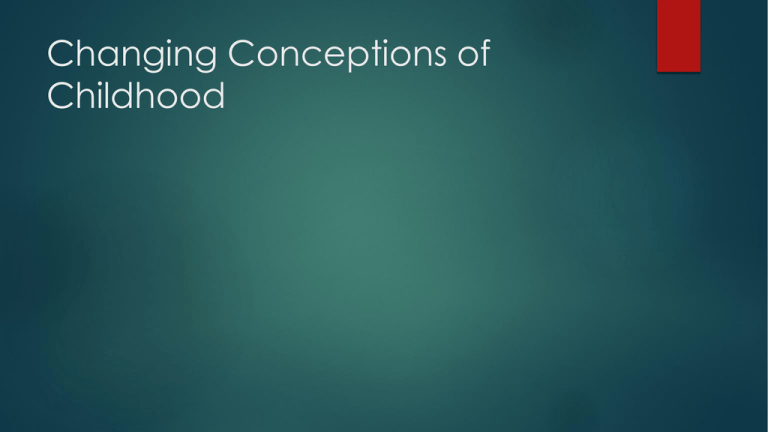
Changing Conceptions of Childhood Changing conceptions of childhood Historical Background Poverty; high mortality rates Child abuse common Norms: Child labor; child abandonment among poor 17th & 18th centuries: philosophers’ visions John Locke Humans born a “tabula rasa” Jean Jacques Rousseau Infants are innocent We should lovingly nurture babies These practices not instituted until early 20th century Changing Conceptions of Childhood Late 19th Century: kinder, gentler view of children 20th Century: Adolescence: identified by G. Stanley Hall Childhood protected, dependent life stage Universal education: primary school mandatory Stage of “Storm and Stress” between childhood and adulthood In the 1930s, President Franklin Roosevelt ordered high school attendance as mandatory. Emerging Adulthood: newest life stage Age 18 to late 20s Time for personal exploration JEAN PIAGET 1896 – 1980 ‘GENETIC EPISTEMOLOGY’ COGNITIVE STAGES Through observation noticed that children make similar errors in cognitive tasks Mental structures; Cognitive systems that organize thinking into coherent patterns so that all thinking takes place on the same level of cognitive functioning. Maturation: Innate biologically based program is the driving force behind development. In contrast to behaviorists, believed that children also construct their learning. Piaget’s Theory of Cognitive Development Piagetian key terms: Schemes-cognitive structure for processing, organizing and interpreting information Assimilation-new existing scheme information is altered to fit an Accommodation-changing new information a scheme to adapt to the Piaget’s Sensorimotor Stage Sensorimotor stage Composed of 4 substages Object Permanence Object permanence -objects continue to exist even when not aware of them Under 4-8 4 months no understanding months-some uncertain about existence 8-12 months-Developing awareness Will still make A not B error Piaget https://www.youtube.com/watch?v=0XwjIruMI94 Evaluating Piaget’s Sensorimotor Theory Criticisms include Underestimating infants ability especially regarding object permanence Renee Baillargeon and researchers tested infant abilities using the violation of expectations method. Children look longer in the spot, even though don’t grab for the object there. https://www.youtube.com/watch?v=u2ovHFt5YXc Object permanence may reflect memory development Cultural limitations as well

